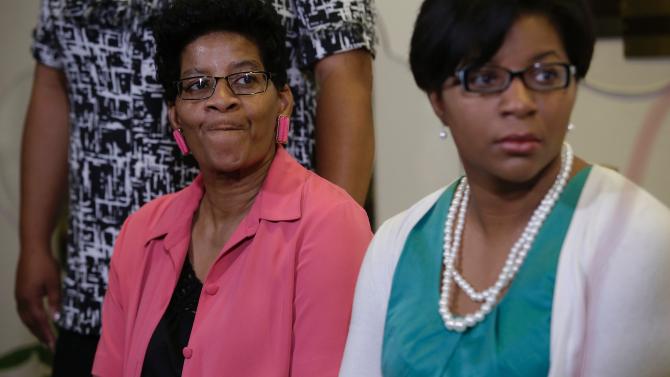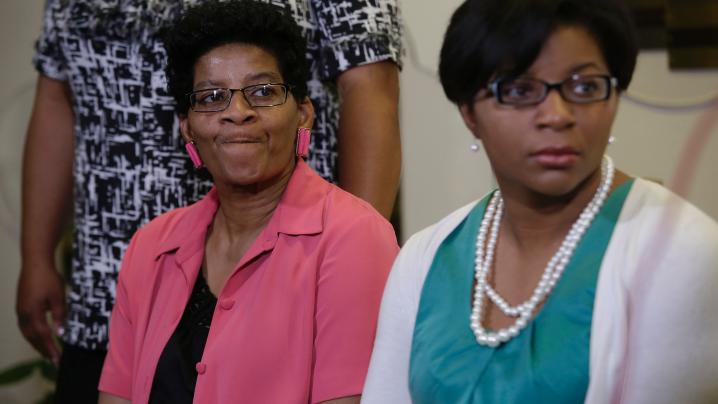[ad_1]

Sandra Bland’s mother, Geneva Reed-Veal, and sister Sharon Cooper at a news conference for Bland at DuPage African Methodist Episcopal Church July 22, 2015, in Lisle, Ill.
Joshua Lott/Getty Images
The Hillary Clinton and Bernie Sanders campaigns are trying everything in their power to show that they’re friends of the African-American community.
Beyond obvious cultural pandering like dabbing and Nae Nae-ing on The Ellen DeGeneres Show, the Democratic candidates have spoken about and offered more policies specifically targeted at the black community than almost any Democrat in the last 40 years. And while this competition is probably a good thing in the long term, this desperation has bred a somewhat questionable practice: Democratic campaigns seeking the endorsements of families that have suffered at the hands of police brutality or injustice (like Trayvon Martin’s family, Eric Garner’s family, Walter Scott’s family and many others). Are these families-in-mourning being exploited, or is this just a part of the campaign process in 2016?
To find out, The Root spoke with Geneva Reed-Veal, mother of Sandra Bland, the young woman who died mysteriously after being taken to jail after a routine traffic stop. Reed-Veal recently announced that she would be endorsing Hillary Clinton in 2016, and we wanted to know why.
The Root: Are you supporting Hillary Clinton because you think she’ll actually do more on criminal-justice issues than Bernie Sanders?
Geneva Reed-Veal: I believe that Hillary Clinton is the most qualified person to be president of the United States. It’s not that she’s the more qualified than Sanders or anyone else, she’s the most qualified person to be president. She stands for equal pay for women, increasing the minimum wage. She will take a stand.
TR: Did Sandra express any feelings about who she would have voted for before she was taken away?
GRV: Sandy never expressed any feeling towards either (Bernie Sanders or Hillary Clinton). But if she were here now she’d be 100 percent behind Hillary. Sandy was such a woman’s woman whenever there was a powerful woman fighting for what’s right—Sandy would be right there as an ally.
TR: How do you respond to the criticism that these campaigns are exploiting black family tragedy for votes?
GRV: I listened to those who said that about endorsing. Let me tell you. I’m an adult and I’m not being exploited. I’m not being exploited by anybody. I supported Hillary in 2008, and if someone of their own free will wants to come out and work for a campaign then that’s not exploitation. Hillary reached out to my family last year. She sent a handwritten note. She met with me and other mothers in Chicago. No press was there, no one talked about all the things she’s done for me and my family. And let me be clear, had I not lost Sandy, I would still be out there endorsing and working for Hillary.
In the end, every family has a right to endorse whomever it wishes. Even if that means different candidates (Eric Garner’s mother supports Clinton, while his daughter supports Sanders). But Geneva Reed-Veal presents what is arguably a very different take on the role of black death and campaign endorsement.
Regardless of the intentions or motivations of the campaigns, if someone was an active supporter before, the loss of a son, daughter, husband or wife shouldn’t delegitimize his or her endorsement. We may never know how Trayvon Martin or Sandra Bland or John Crawford would have voted in 2016, but if their families believe that allying with a campaign may prevent the next tragedy from happening, they should do whatever they can to honor their lost loved ones.
[ad_2]





















